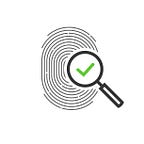What Are Some Drawbacks of Conducting Remote Interviews?
When the pandemic first shut down the office and sent our unit to work from home, we thought the situation was temporary. Here we are a few years later, and many Covid-era work practices seem to be here to stay. I remember early discussions with executive management and my investigative division about what obstacles remote work would present. The concern was unanimous: How will we conduct effective interviews (and interrogations) over the internet? While this change undoubtedly pushed the limits of our previous interviewing skills, here we are a few years later, still conducting remote interviews and still closing cases with successful criminal prosecutions and civil litigations.
Before Covid, most agencies, including ours, conducted most of their interviews face-to-face. These were almost always audio-recorded. Investigators also conducted audio-recorded interviews over the telephone when appropriate. Back then, it was pretty rare to have a video-recorded witness interview.
This new era is different. Some things are better, some are not, but like everything in life, we have to adapt to bolster our strengths while improving our weaknesses. However, one thing that has not changed is that our unit continues to complete successful cases. I can count on one hand the cases we probably lost because we couldn’t meet someone in person for an interview.
What are some drawbacks of conducting remote interviews?
It can be harder to read and connect with a person over video. Doing this in person feels more natural, although I constantly remind investigators that some of the comforts we experience are just part of being human. It never guarantees that we connected with or read people more accurately.
One of the first things you learn for conducting interviews at a police station or interview room is to control the environment. We like specific room dimensions and seating arrangements. We want to minimize distractions and help manage the interviewee’s ability to focus. Remote interviews force us to give up all of these factors. However, I know there are a lot of investigators who are used to conducting witness interviews out in the field, so this point might not be a significant issue. Interrogations, however, are likely a different matter.
Along with distractions, the interviewee might have access to notes or other information while you interview them. I can see this as bad if they are trying to feed you information to cover the commission of a crime. However, we want interviewees to provide accurate and helpful information? In any case, that is just another element of video interviewees we cannot control.
Speaking of documents, it is not uncommon to show information during an interview, such as documents and photographs. Many of the documents our agency uses has protected information that we can show to a person. However, under no circumstances can we give them a copy of this information. Protecting data becomes a challenge when the interviewee can record or screenshot any information we show them. This security concern has required us to refrain from using these types of information in our remote interviews.
Technology is super convenient when it works but can be maddening when there are glitches like not being able to connect to the video platform or experiencing distorted sound. In these cases, a recorded interview might not be usable. When preparing for an online interview, you should prepare for worst-case scenarios, like being ready to close the computer and do the interview over the phone. Are you equipped and prepared to do that? Always have a backup plan.
I think one of the last challenges for investigators is that most of us are “people-persons.” We like interacting with people, and we are usually good at it. Conversely, some people don’t like being in front of a camera. The challenge here is taking away a strength and possibly placing an investigator in a situation that feels foreign.
I hope the information outlined in the articles on remote interviews on the Investigator Today website inspires confidence when using the remote interview as a tool. It is empowering to understand the drawbacks, recommendations, and advantages of this tool so you can add it to your investigator toolbox. Armed with this information, we should all realize that remote interviews are not better or worse; they are just different.
However we feel about remote interviews, they are here to stay, and as professionals, we should develop and master this critical skill.
